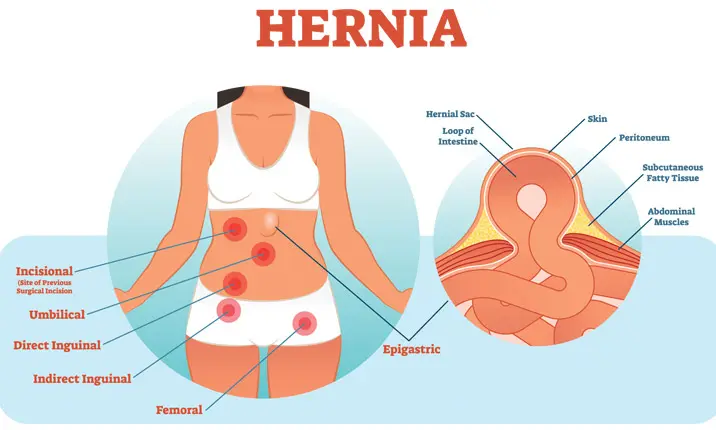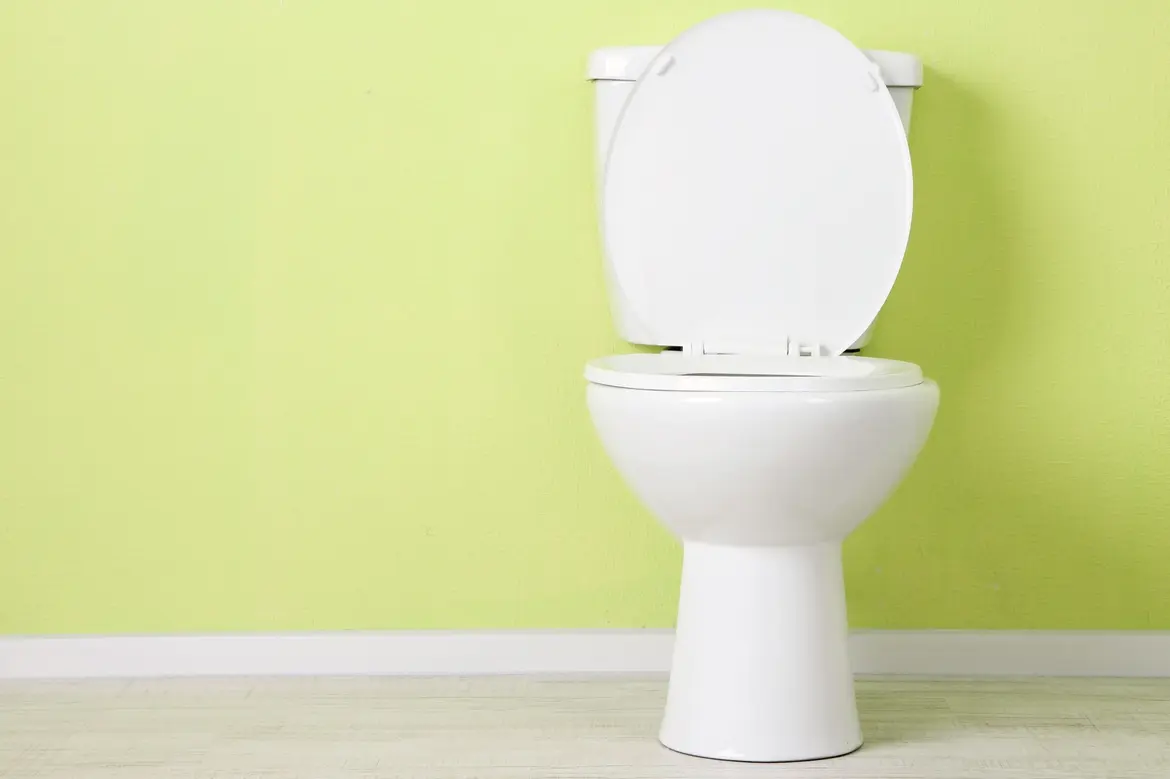A hernia happens when an internal organ in your body pushes through a hole or tear in your abdominal wall. While it usually causes no symptoms except for a bulge, once it appears, it can be a potentially severe condition and should be evaluated by a doctor.
What causes a hernia?
If you develop a hernia, it is most likely due to a hereditary disposition to the condition. However, they can also be caused by lifting a heavy object, being pregnant, straining with constipation, persistent coughing and being overweight.
An early sign is a slight in the lower abdomen that may feel painful when you put pressure on it.
What are the most common types of hernia?
There are many different types of hernia that can affect adults and children. These are 5 of the most common types:
Inguinal hernia
This is the most common type of hernia. While more common with men, it has been found in women as well. This type of hernia involves the inguinal canals, which are passageways in the anterior abdominal wall – this is located between the abdomen and the scrotum that houses the spermatic cord in males, and in the round ligament supporting the uterus in females. You may notice a bulge and pain around your groin. Surgery will be required to repair this hernia.
Epigastric hernia
This occurs anywhere along the upper part of the anterior abdominal wall and may cause no symptoms, or may lead to nausea and vomiting as well as abdominal pain and bulging. If this hernia is not repaired by surgery, it may lead to serious complications.
Incisional hernia
This type of hernia may occur after abdominal surgery that has left the abdominal muscles weak, allowing the intestines to bulge through the abdominal muscles. You will have to undergo surgery again to fix this.
Hiatal hernia
A hiatal hernia happens when part of your stomach bulges through a gap between your oesophagus and your diaphragm. This typically affects pregnant women, and people over 50 years of age. Symptoms include heartburn and indigestion. It can often be treated with lifestyle changes and medication, although surgery may be necessary.
Umbilical hernia
This type of hernia is more commonly found in new-borns, but adults may also have them. In babies, you may notice a bulge around the belly button. It may resolve itself in the baby’s first year, but if it doesn’t, surgery will be required.
When should you see a doctor?
Hernias generally don’t go away on their own. Even if it is not causing you any pain, you should see a doctor as a precautionary measure. Your doctor may take a watch and wait approach or recommend surgery depending on the type of hernia you have and the risks of it causing complications later.
Surgery for hernia repair
There are 2 main ways your surgeon can repair your hernia:
- Open surgery, where a larger incision is made to allow the surgeon to be able to push the protruding organ back into place.
- Keyhole (laparoscopic) surgery, where your surgeon will operate through small incisions in the body using special surgical tools and a tiny camera called a scope to see inside the body during the operation. As this surgery is less invasive, you may be allowed home on the same day, or after a night of observation. You will also go on to a full recovery within a few weeks.
Can you prevent getting a hernia?
If you are susceptible to the condition, there isn’t much you can do to prevent it. However, you can reduce your risks by:
- Maintaining a healthy body weight, which puts less pressure on the abdominal wall
- Quitting smoking
- Avoiding straining when lifting weights and moving your bowels (or passing motion)
When does a hernia become a medical emergency?
If the hernia becomes incarcerated or strangulated, surgery will be your only option. An incarcerated hernia happens when the protruding organ cannot be pushed back into place in the body while a strangulated hernia is a medical emergency because the blood supply to the protruding tissue gets cut off.
Seek immediate medical attention if you have the following symptoms:
- sudden, severe abdominal pain
- fever
- vomiting
- nausea
- difficulty passing motion or wind
- the hernia becomes firm or tender or cannot be pushed back in
If you notice an abnormal lump or a bulge at the groin area, or if you suspect you have hernia, it is recommended to consult a doctor to evaluate your condition and advise on your treatment options.














